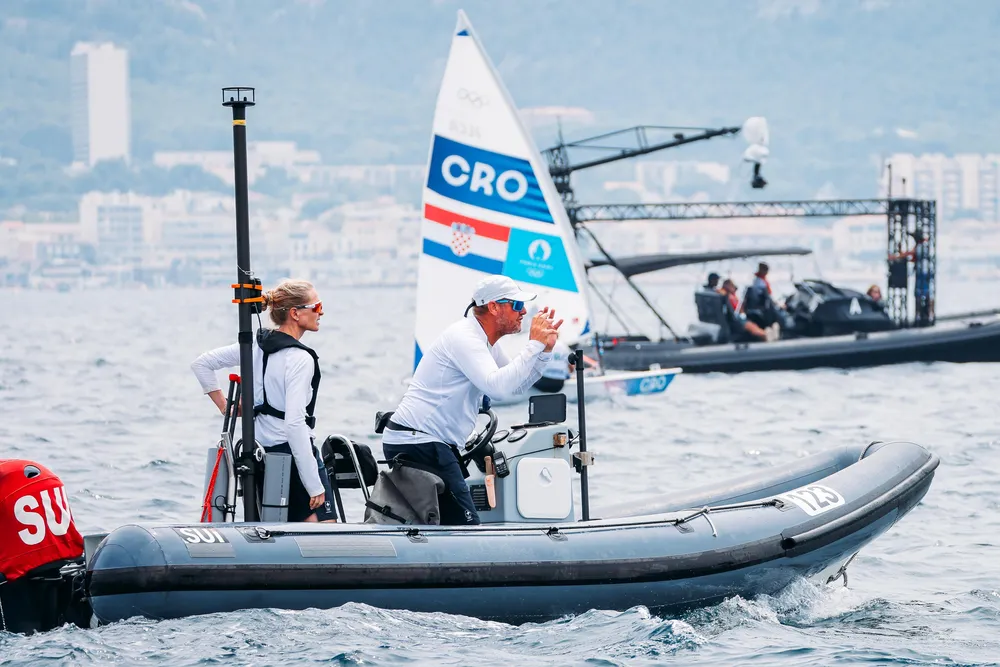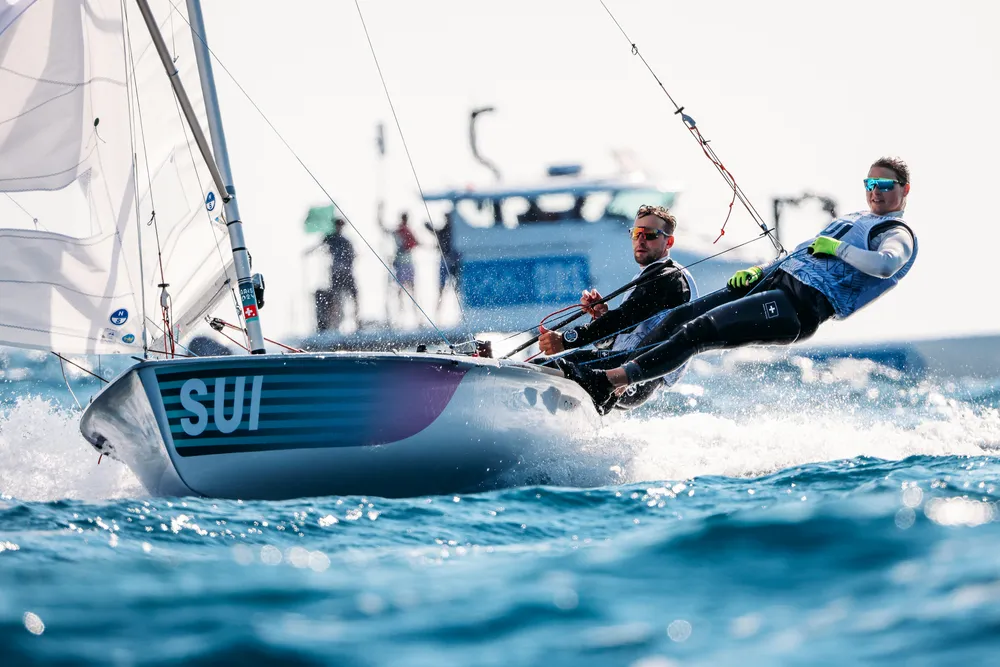Mental strength is crucial in top-class sport. However, it does not come naturally and must be trained just as intensively as the physical components. How does mental coaching work and what effect does it have on athletes? Skippers asked mental coaches and sailors.
“I am always amazed at the precision with which the athletes’ equipment is adjusted and their body posture optimized down to the millimetre,” remarks Eveline Bhend, former Olympic skier and mental coach for ten years. “But what happens if the body tension is not optimal or destructive thoughts arise? Mental training is just as essential as physical training. There is no physical action that does not involve the mind. There are always thoughts that affect the body in some way.”
Numerous studies have shown that athletes who train mentally on a regular basis perform significantly better. The effects range from faster reactions to better handling of frustration and pressure.
The Lake Thun and Brienz Sailing Association (TBSV) has been using mental coaching for years to support junior athletes. For TBSV President Ernst Peter Burger, this is an important element: “In sailing, so much happens in the mind, so there can’t be any distracting external influences. This is where the mental aspect comes into its own, especially with young people, who are still very easily distracted.”
Versatile approach
Julia Kalenberg worked as a mental coach for young sailors at the TBSV. She explains how mental training works for the youngest: “At the beginning of coaching with the children, we work in groups to lay the foundations. When they later switch to a two-man boat, we form teams of two. That way, the children learn to see each other’s strengths right from the start, to tell each other what is going well and what they appreciate about the other. In individual coaching, we often go on a ‘solution walk’ in the countryside. The coachees can develop further with the help of scale questions. Working with goal posters and solution diaries has proven its worth. This makes changes and successes tangible for the athletes and boosts their self-confidence.” As a mental coach, Maayke van der Pluijm supports top athletes, coaches and employees of the Swiss Sailing Team. This includes coaching the sailors on basic mental skills for coping with pressure during competitions. “We do this with relaxation techniques, visualization, developing routines and emotion regulation, for example,” she explains. “During the Olympics, we focused on creating a safe space in which the sailors could recover, socialize and prepare for the next day of competition.”

SUPPORTED THE SWISS SAILING TEAM DURING THE OLYMPIC CYCLE AND THE OLYMPIC GAMES AS WELL AS ALINGHI RED BULL RACING. ©Sailing Energy


MASTER’S DEGREE IN SPORTS SCIENCE, HAS BEEN WORKING AS A MENTAL
MENTAL COACH, AMONG OTHERS AT THE TBSV. ©DR
Success takes time
Mental training is a matter of trust. Not every athlete gets on with every mental coach. It has to be a very good fit for the spark to be ignited and success to be achieved. And it’s a long road. With young people, success is often first seen at school. They can concentrate better, are less distracted and get better grades. Everyday school life is easier for them. Top sporting performance comes later, as there are many other factors involved.
For Maayke van der Pluijm, the success of mental training depends on the goal that the athlete has set themselves. This is usually based on subjective feedback in terms of stress, mental state or focus during training and races. Very often, however, mental training is not just about athletic performance, but also about coping better with the demands of life. “For me as a coach, success means that the athlete is mentally and physically balanced over time and feels better able to deal with the pressure of high-level competitions, but also in everyday life,” she adds.
Mental training involves a process that requires time, patience and, above all, regular practice, says Eveline Bhend. The key to success lies in consistency and the integration of mental tools into everyday life and regular training. “If you don’t practise it in everyday life, school and training, you have no chance of being able to apply it in competition.”
From “good” to world class
What do top athletes think of mental training? Olympic athlete Maja Siegenthaler says: “Mental coaching has helped me to be more in the here and now and therefore to work in a more process-oriented way, in line with the motto ‘success follows success’. It’s important to work on this right from the start, because then you have the tools to turn a crisis into a productive state and come out of it stronger.” ILCA6 sailor Anja von Allmen adds: “In the end, mental strength makes the difference between good and world class. The earlier you start, the better, and the more honest you are with yourself and in the mental training sessions, the more you get to know yourself and what you need in which situations on the water.”
Magic zone
In a world of constant striving for excellence, mental training is an indispensable tool to make sailors not only better, but also more balanced and resilient. It is the invisible wind that fills their sails and takes them to new horizons. Eveline Bhend puts it in a nutshell: “The true potential of mental training unfolds when everything comes together and athletes can consciously enter the ‘magic zone’. This state represents the highest level of mental training, where body and mind work together in perfect harmony to achieve peak performance.”




